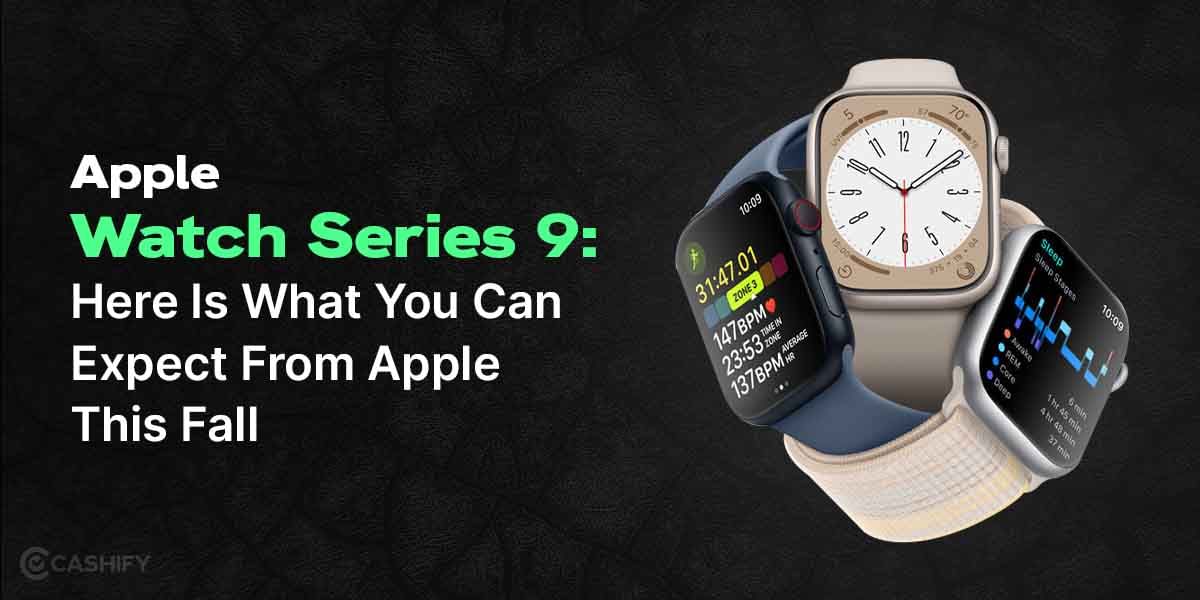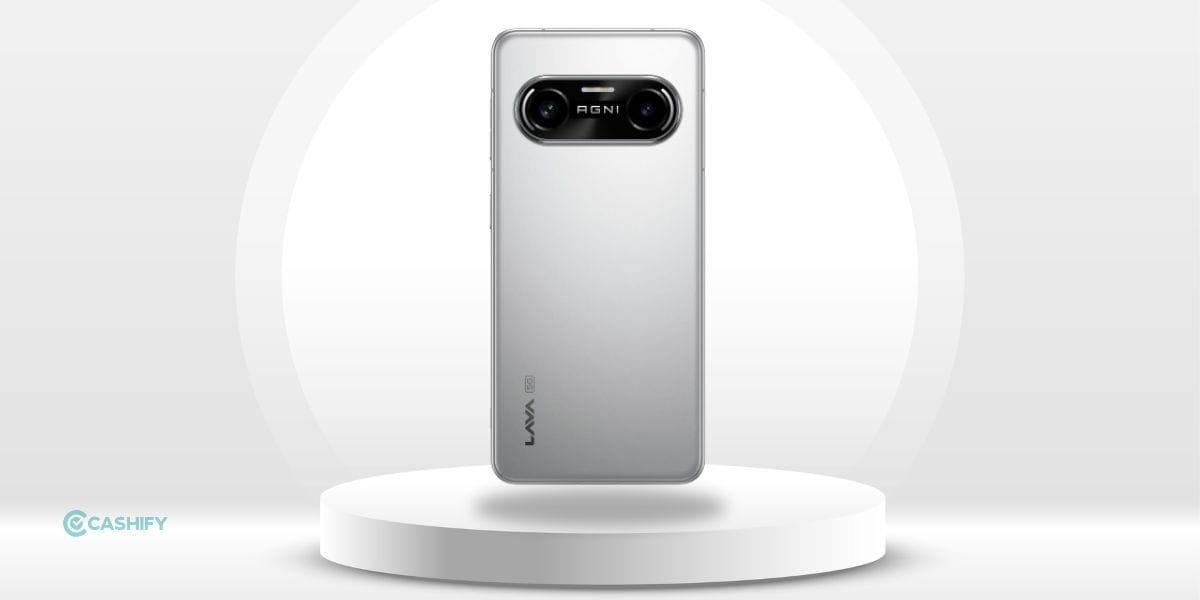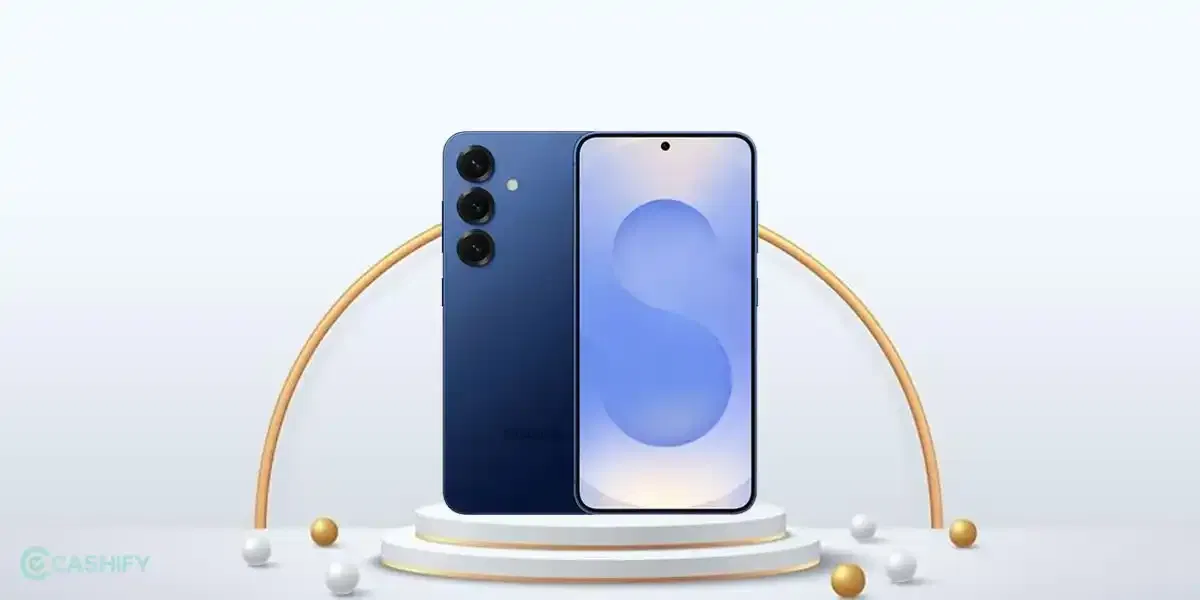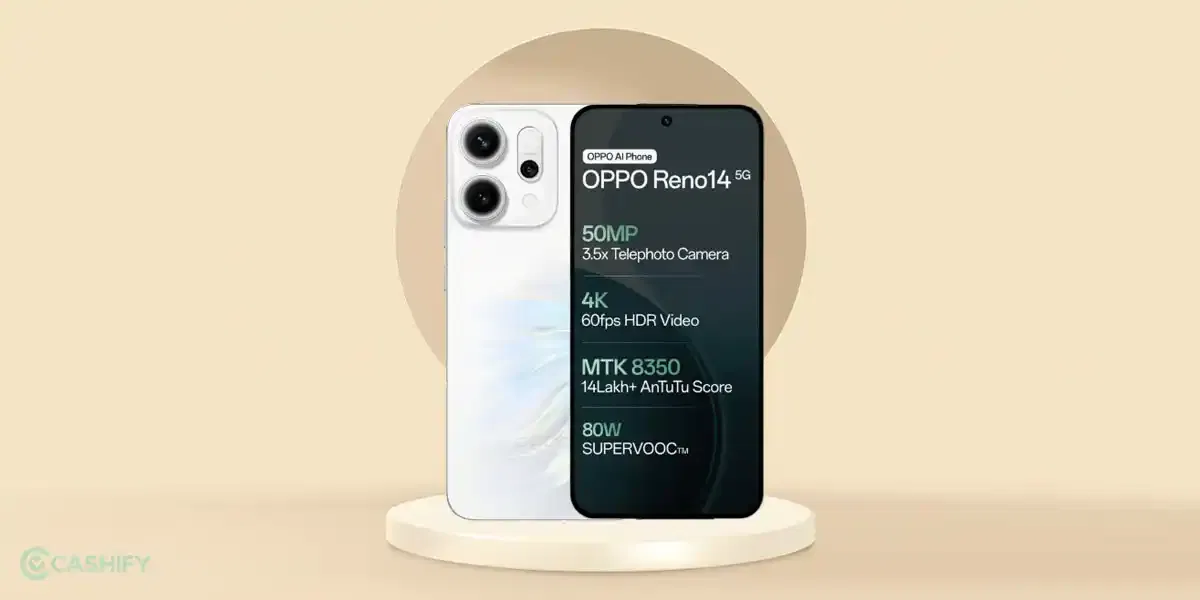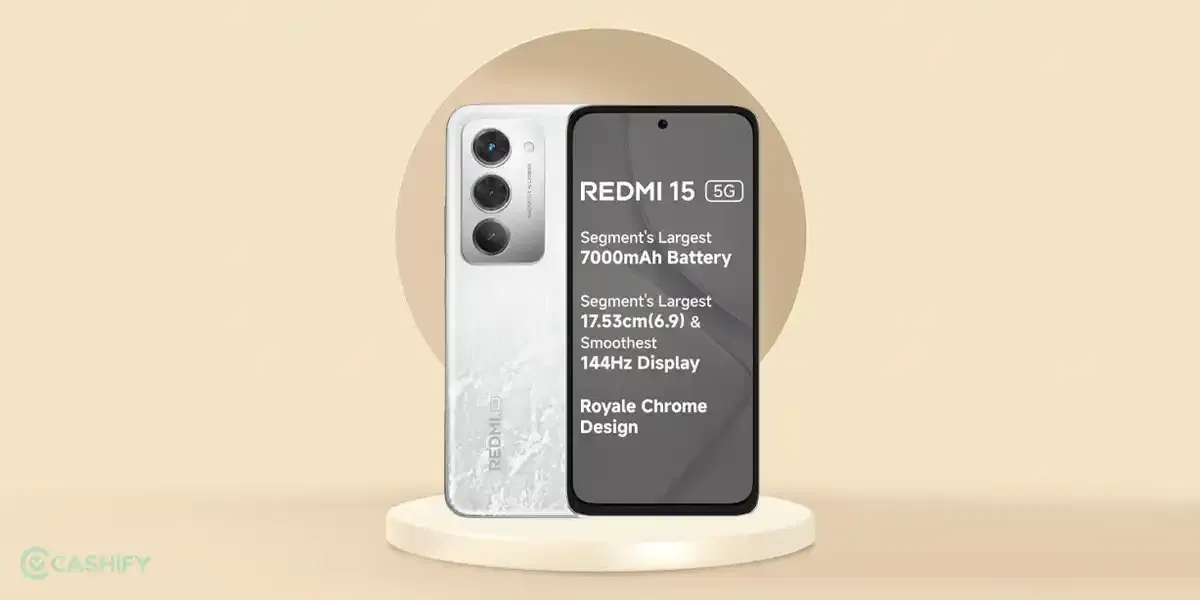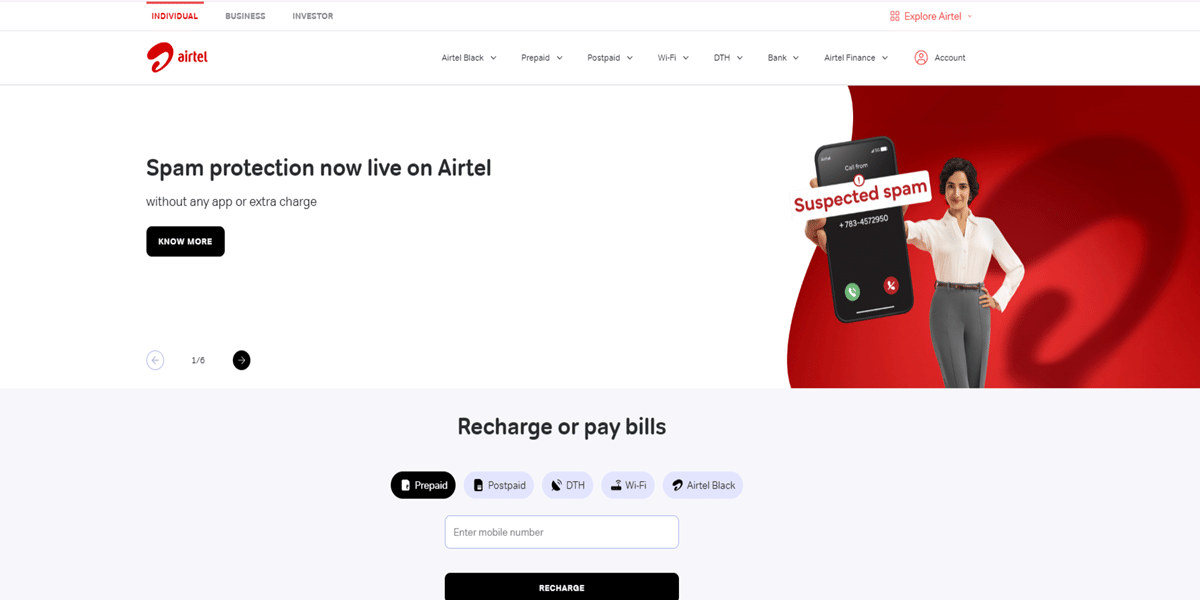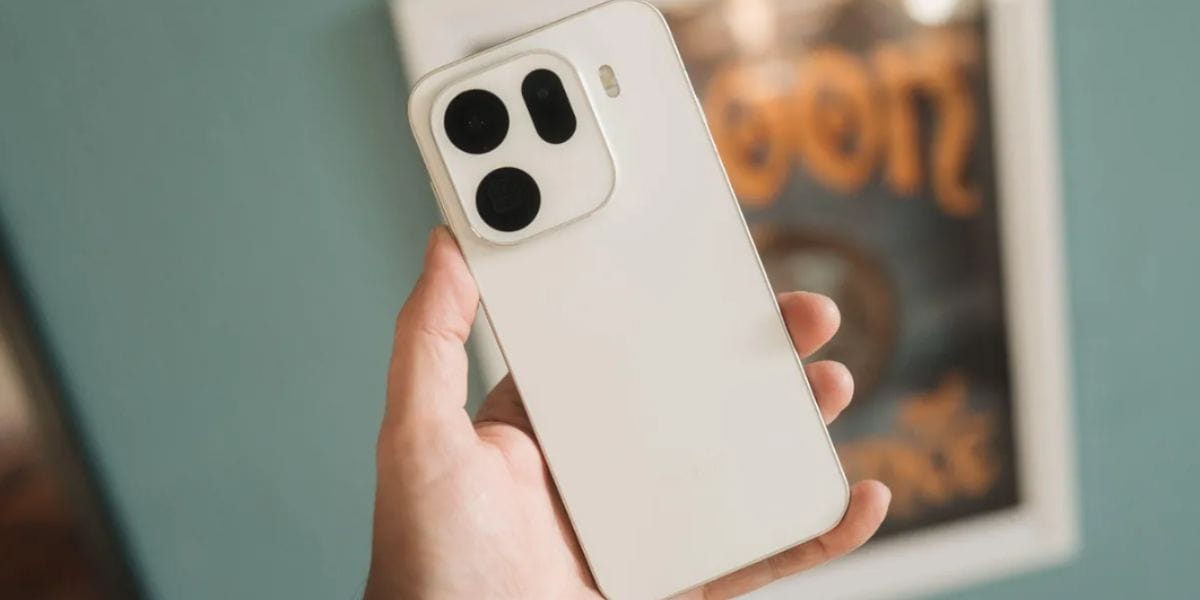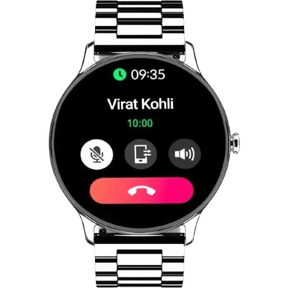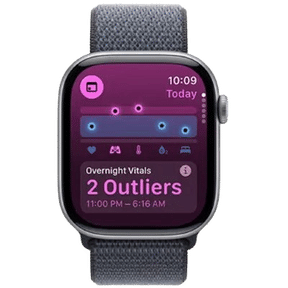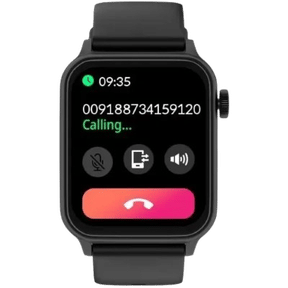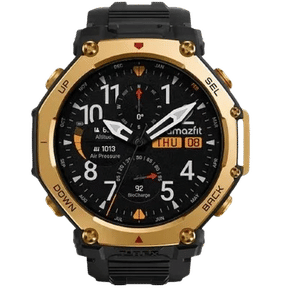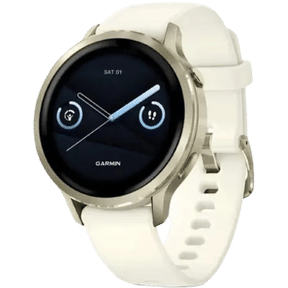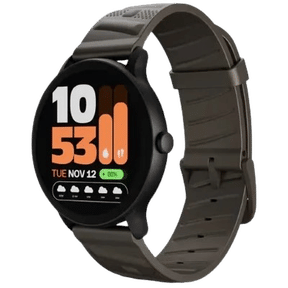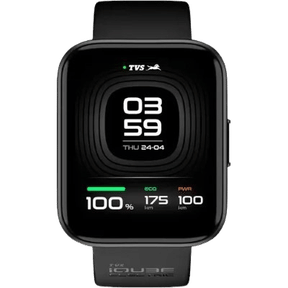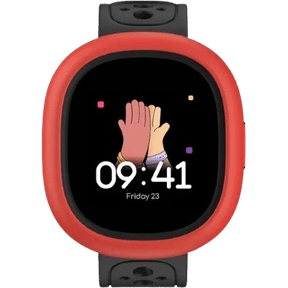In the last decade, smartwatches have come a long way. With a dual band GPS feature, they are now not just fitness trackers but more than that. This article will explain dual GPS and how it differs from regular GPS in a smartwatch.
However, to understand the dual GPS concept, first, you must be familiar with the GPS concept.
Also read: 5 Best Smartwatches With GPS Tracker in India
What is GPS?
GPS stands for Global Positioning System. It is based on a satellite that transmits signals to find out your exact position on the earth. The time and geolocation information will be sent to the GPS receiver (smartwatch, smartphone, etc.). This GPS works perfectly only when four or more GPS satellites have an unobstructed line of sight. In a nutshell, in optimal situations, these four or more satellites send navigation signals to the GPS receiver device, which can be your smartphone or smartwatch. Your device will receive and interpret those signals to inform you of your precise location.
The receiver calculates the distance between itself and four satellites to find the exact location. Generally, GPS provides reliable location information up to five to ten meters. Sometimes, it can give you a potential error of approximately 15 meters.
Now, one question will undoubtedly pop into your mind – when the condition is not optimal? How can we resolve this issue?
Read on to get its answer.
There are various cases when the signal blockage occurs. The most common situation is when large physical structures block the signals. These structures can be mountains, tall buildings, etc. Another reason could be the ionosphere interference.
Also read: Smartwatch Features to Consider While Buying It
So, how can we resolve this issue?
The simple solution to this is opting for dual-frequency GPS. The dual GPS pacifies the signal problems caused by the above-discussed factors. Therefore, you can enjoy more accurate and reliable location recognition.
Before deep diving into Dual GPS’s working on a smartwatch, let’s first understand what multi-path errors are.
What are multi-path errors?
When you use the phone or smartwatch to request signals and information from the satellite, your smartwatch or phone acts as a receiver, and the satellite acts as a transmitter. Now, the signal has to travel from the transmitter to the receiver.
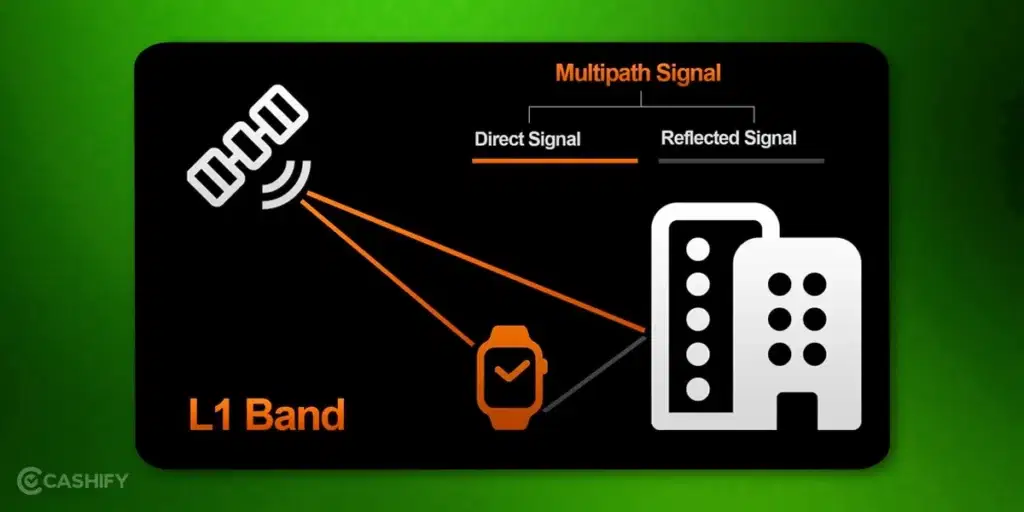
As shown in the image, if only the L1 band is used, the signals will reflect off these objects and generate multiple signal paths with no useful information due to many obstacles in between. It will lead to errors while receiving information, known as multi-path errors. This issue was resolved with dual GPS technology.
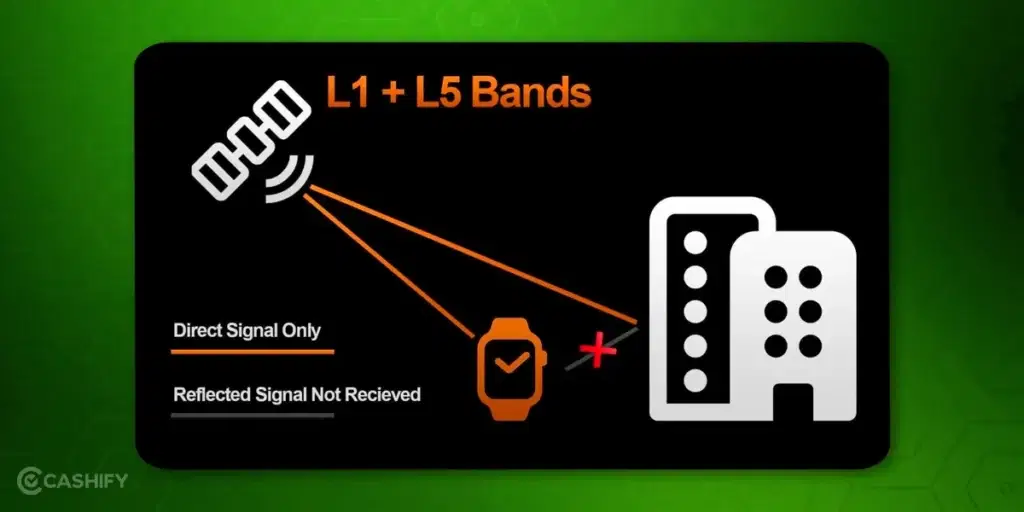
As shown in the image, when the device uses both L1 and L5 bands, it gives you more power and accuracy. It can easily detect the undesirable reflected signals that generally occur due to multi-path errors.
Also read: 6 Things To Keep In Mind Before Buying A Smartwatch
What is Dual band GPS? How Dual GPS Works On a Smartwatch?
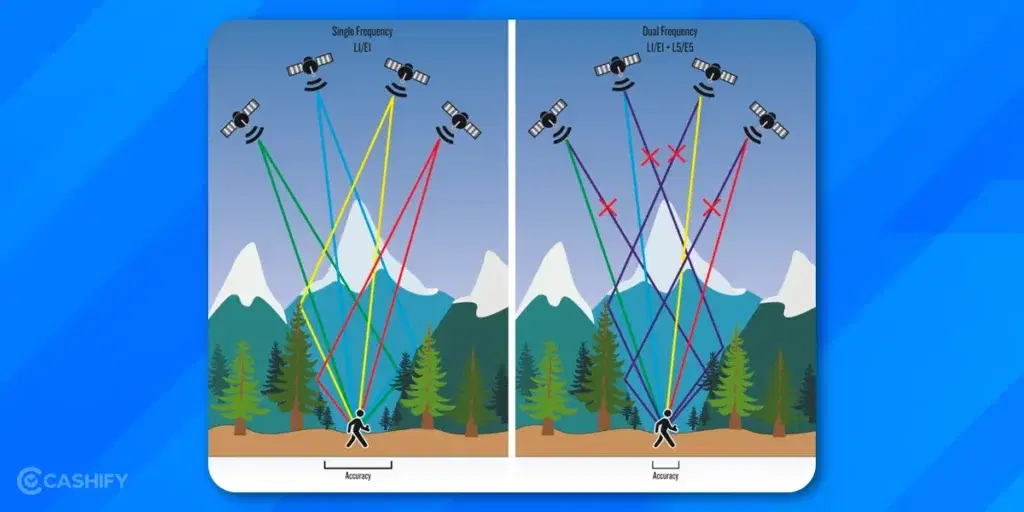
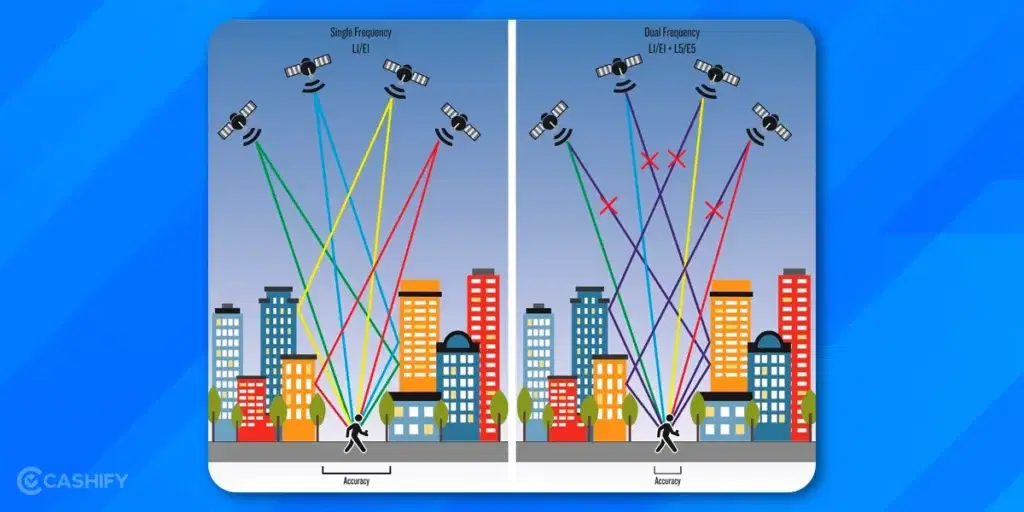
Generally, the GPS uses two different frequency bands.
1) L1
2) L5
When your device (smartphone or smartwatch) uses a regular-frequency GPS, it can obtain satellite signals transmitted only on the L1. On the other hand, in Dual GPS, the device can accept satellite signals from both the L1 and L5.
The L1 band’s frequency is 1575.42 Mhz, and the L5 band’s is 1176.45 Mhz. When the device uses dual GPS, it receives two different satellite signals.
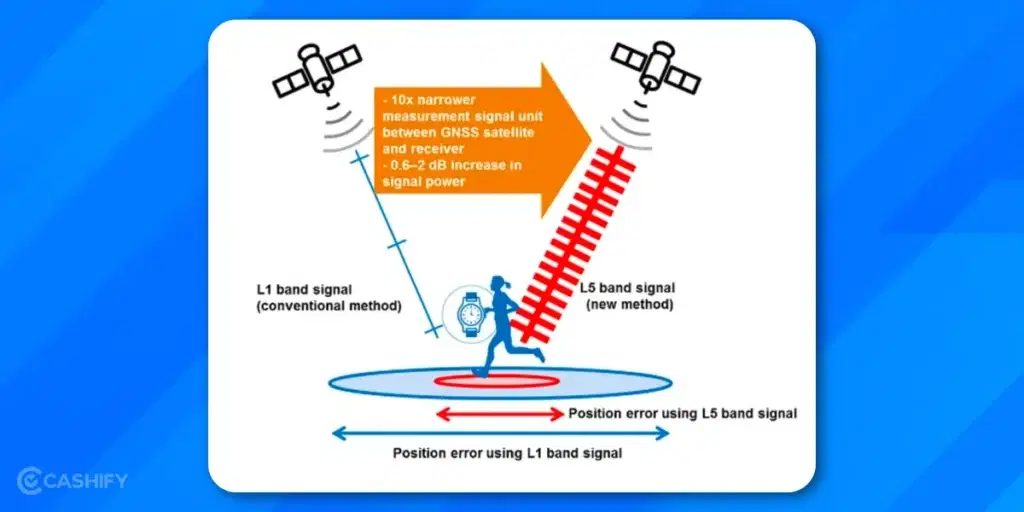
CCR – code chip rate is the key parameter in GPS. It is the number of pulses/second at which the particular code is received or transmitted. In the L5 band, the chip rate is 10x as compared to the L1 bands. Therefore, ultimately, the error reduction capability also increases by 10x. That’s why there is less chance of multi-path errors.
In simple terms, the Dual GPS uses L1 and L5, both frequency bands, which provides you with a highly accurate GPS positioning solution.
Also read: Explained: All Kinds Of Sensors In Smartwatch, Pros and Cons
Pros of Dual Band GPS
Does your smartwatch use dual GPS? If yes, it can quickly lock GPS signals compared to your traditional watch. Besides, the position tracking will be more accurate and provide reliable speed, distance, and calorie ratings.
Here are a few advantages that dual GPS offers.
- It provides you with more accurate positioning when you use the device in a challenging environment.
- Dual GPS provides you with accuracy up to 2 meters.
- The system can easily find and reject satellite signals compared to a single-frequency GPS receiver. It ultimately increases accuracy.
- The system also helps in rejecting ecological effects on the GPS signals.
Also read: 8 Best Smartwatches In The World
Quick Recap Of Regular GPS vs Dual GPS
| Key Parameter | Regular GPS | Dual GPS |
| Accuracy | Up to five meters | Up to two meters (to centimetre level) |
| Frequency Band Used | L1 | L1 + L5 |
| Anti-interference capability | Ten times less than dual GPS | 10x than regular GPS |
| Noise management | Ten times less than dual GPS | 10x than regular GPS |
| Suppression capability (multi-path error) | 10x less than dual GPS | Increased by ten times |
Also read: 5 Best Android Smartwatch To Buy
Epilogue
So this is all about regular GPS vs Dual GPS on a smartwatch. Hopefully, this article taught you the difference between the technologies, their working, and the back-end tech of the dual GPS. Still, you can contact us via the comment section if you have any queries. Stay tuned for the latest updates about such interesting topics.
Also read: 5 Best Smartwatches Under 7000 in India
Searching for the best platform for mobile repair? Try Cashify’s online platform to experience hassle-free mobile repair services.







